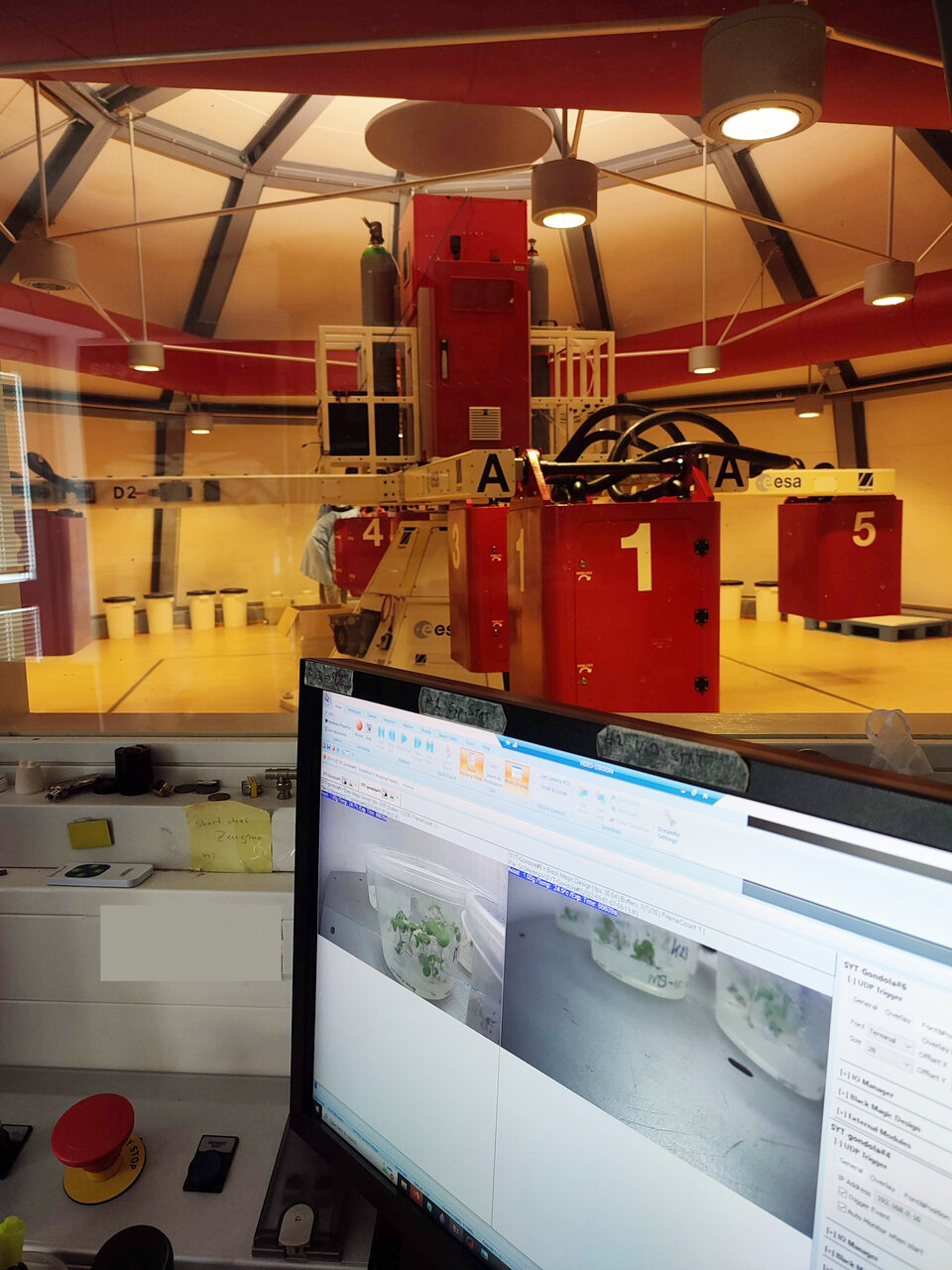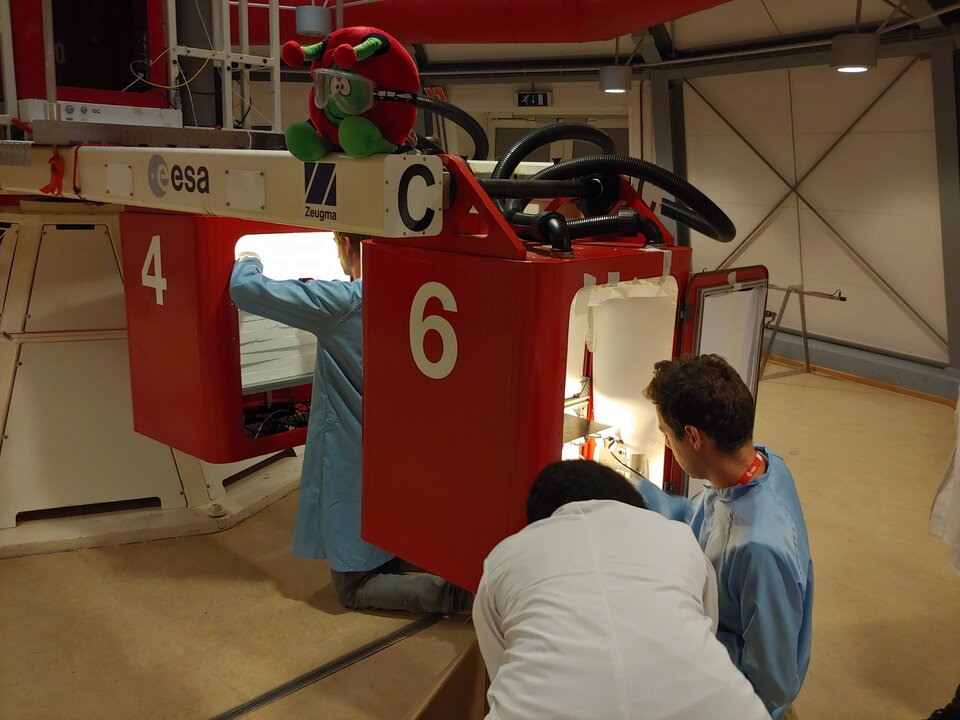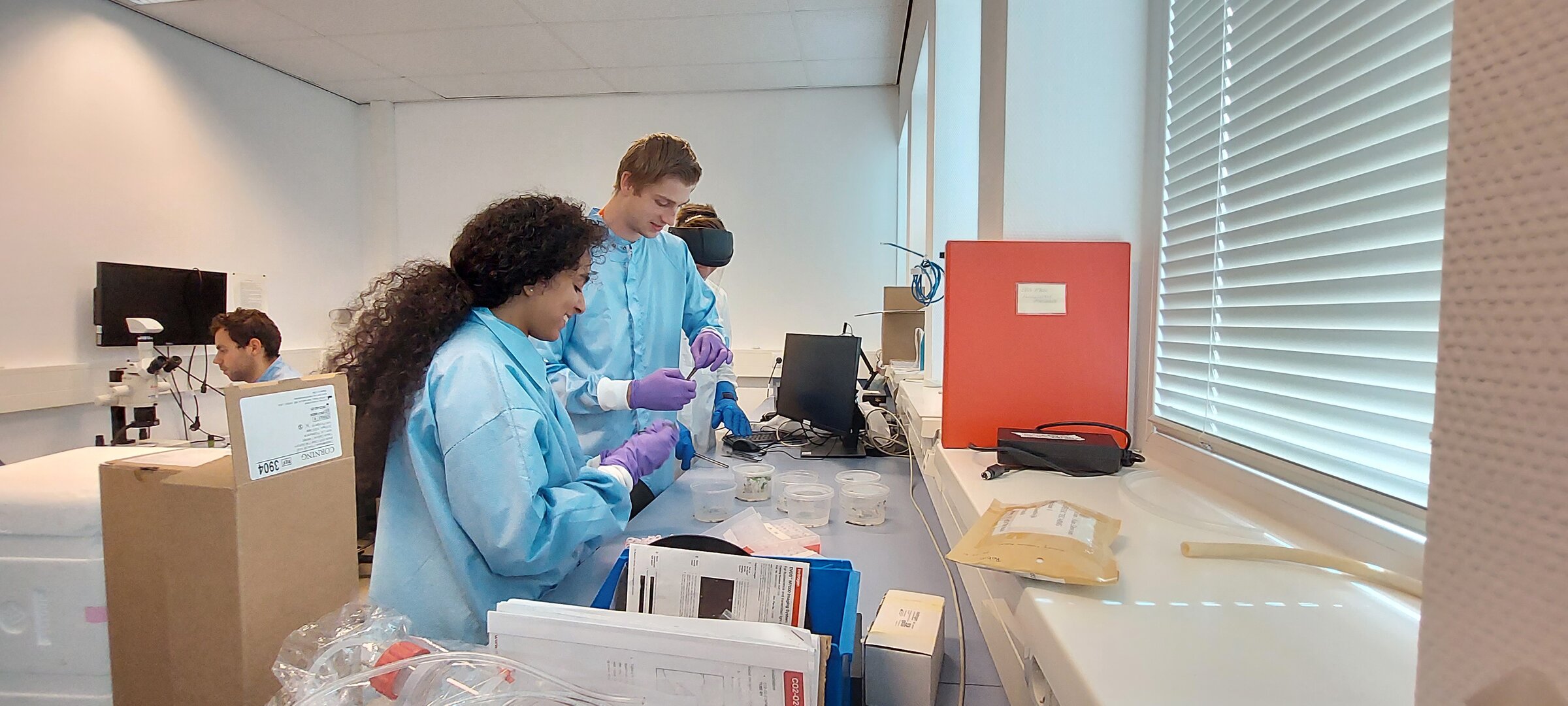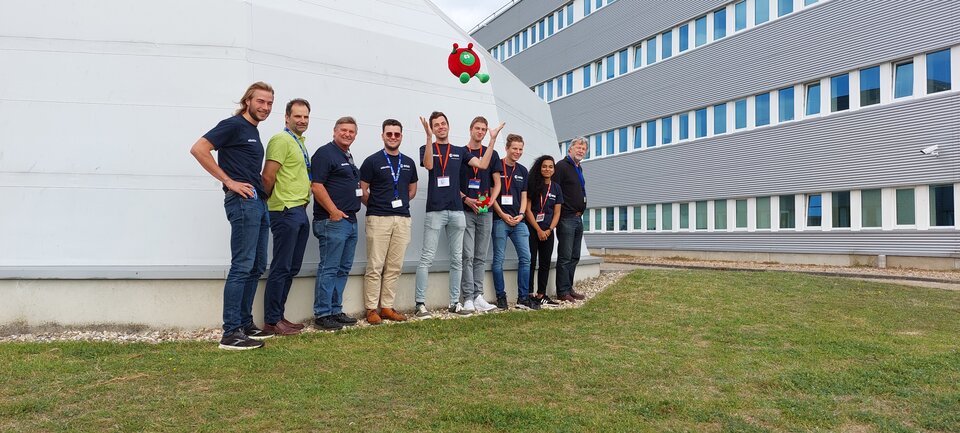Effects of altered gravity on the nutrition value of microgreens
In brief
The team Hypercropsidants from the Inholland University of Applied Sciences/ Hogeschool Inholland performed research at the Large Diameter Centrifuge (LDC), part of the ESTEC Life- and Physical Science Instrumentation Laboratory at ESTEC, the Netherlands from the 31st August to the 2nd September after being selected for the Spin Your Thesis! Programme, cycle 2022. The students investigated the change of nutrition value of microgreens, being subjected to off-nominal gravity, by analysing their Vitamin C gene expression and bio functionality.
In-depth

The LDC boasts a diameter of 8 m and is capable of simulating hypergravity environments from 1 g to 20g due to centripetal forces at various speeds. The LDC provides a scientific platform for scientists to examine relationships between varying levels of gravity and their experimental results. This can be paired with research in simulated microgravity in a 3D clinostat to explore a broader spectrum of gravitational effects.
Hypercropsidants is composed of four bachelor level students, studying green biotechnology. Their goal is to study the effects of hyper-gravity and simulated microgravity on the gene expression of microgreens/ microcrops, the seedlings of adult crops. These crops have a higher nutritional content than is found in their mature counterparts, weight for weight. Due to their high nutrient and antioxidant contents, microgreens are an interesting food source and a viable candidate for crew members on long duration space flights. To achieve their goal of understanding what the effects of altered gravity are on the microgreens’ gene expressions, the students subjected their samples to a hyper-gravity treatment of 4g at the LDC and simulated microgravity in a Random Positioning Machine.

Over the course of the Spin Your Thesis! programme, the team learned how to design, build, and operate an experiment within an ESA facility. Furthermore, the team performed the coordination, logistics, and project management required to perform their experiment effectively. The culmination of these aspects results in an extraordinary learning experience for the students involved.
At the end of the campaign, one student said “As bachelor students we learned a lot which we wouldn't have learned at this point in our studies”, and added ”We didn’t only learn about setting up an experiment, but also about project management and acquiring sponsors.” Another student added ”We made many connections, not only during the campaign, but also during the training week and over the entire duration of the programme that will benefit us in the future.” The campaign itself has concluded but the work has not, there is still a lot to be done. The data that was collected during the 3 campaign days needs to be analysed and documented. This will give the team a lot of work as they had been snap-freezing over 600 microgreen samples.
The employees working at the LDC and at ESA Academy enjoy working with the students and watching their projects grow from initial designs through to completion, and publication. “Every year, Spin Your Thesis! students are eager to perform top-quality science experiments on this state-of-the-art centrifuge”, said Nigel Savage, Programme Coordinator for university student experiments. “It is amazing to see how many people are offering to help enthusiastic young scientist to help them to achieve their goals. We are confident that their first ‘professional’ encounter was positive for them and that they will pursue their career in gravity related research.”
If this spiked your interest in the hands-on programmes offered by ESA Academy or if you have an experiment you would like to perform in altered gravity environments, then visit the webpage of ESA Academy’s new PETRI programme or click here to have a chance at performing your investigations at one of the platforms available for student experiments at ESA Academy.



